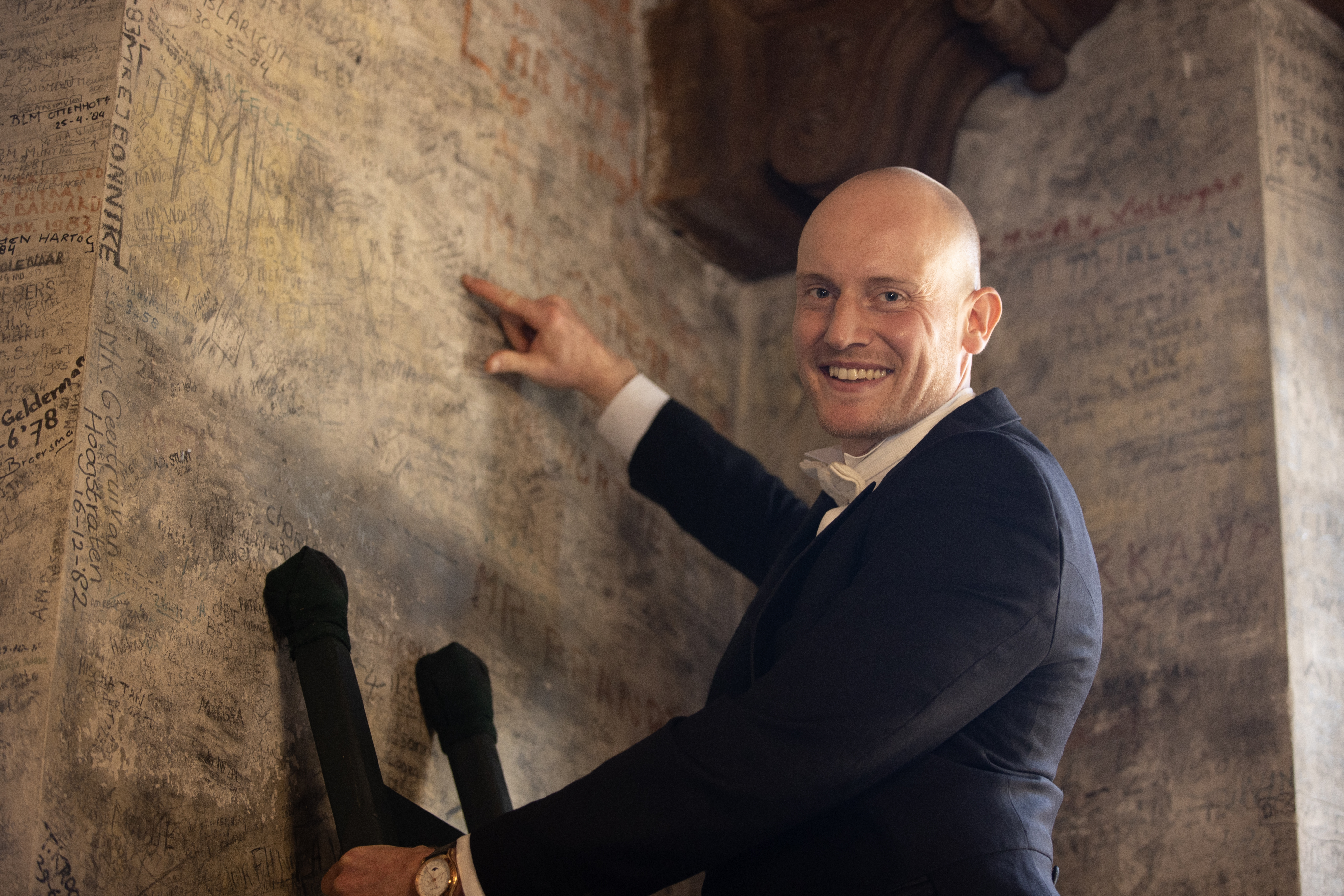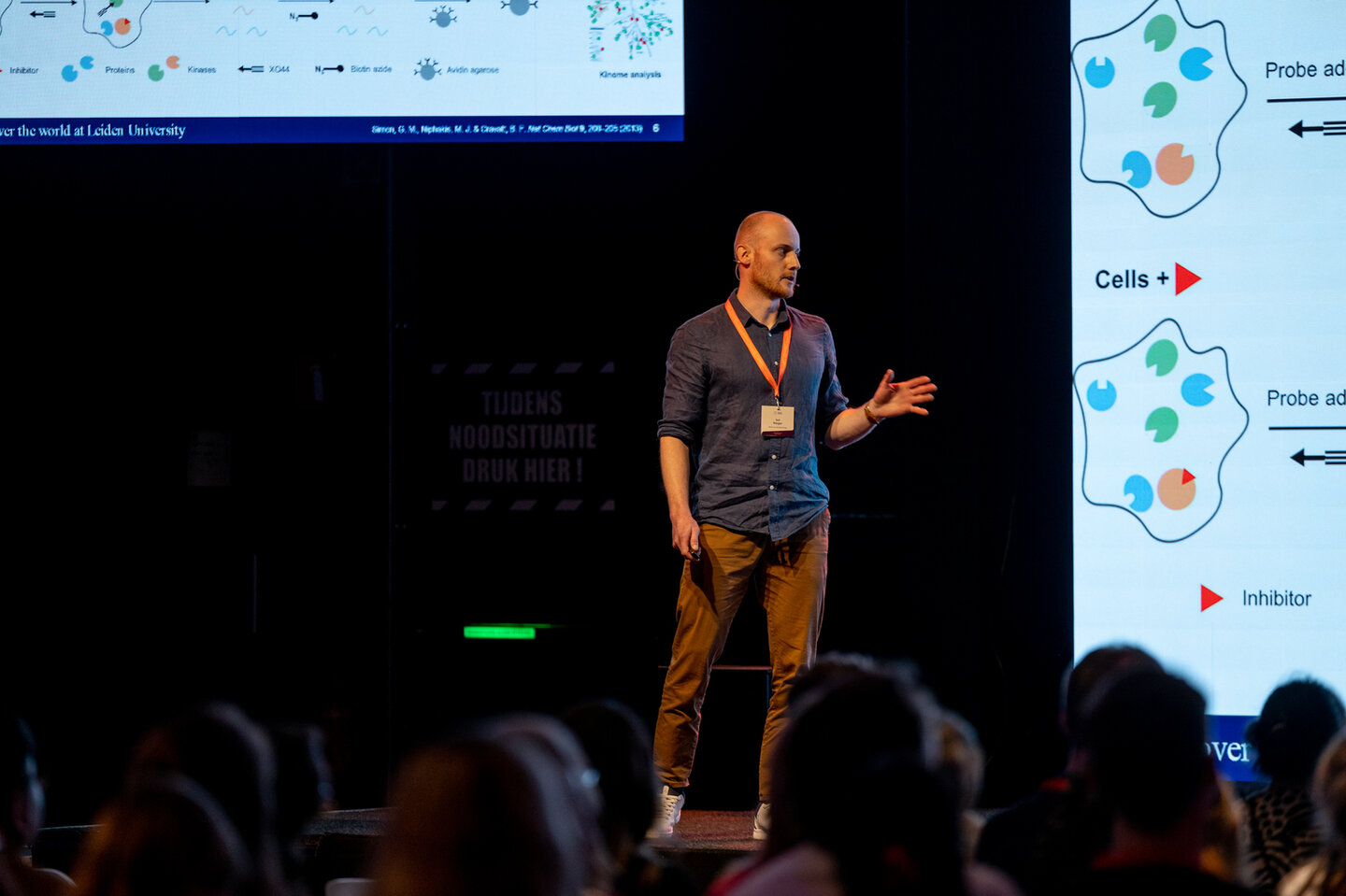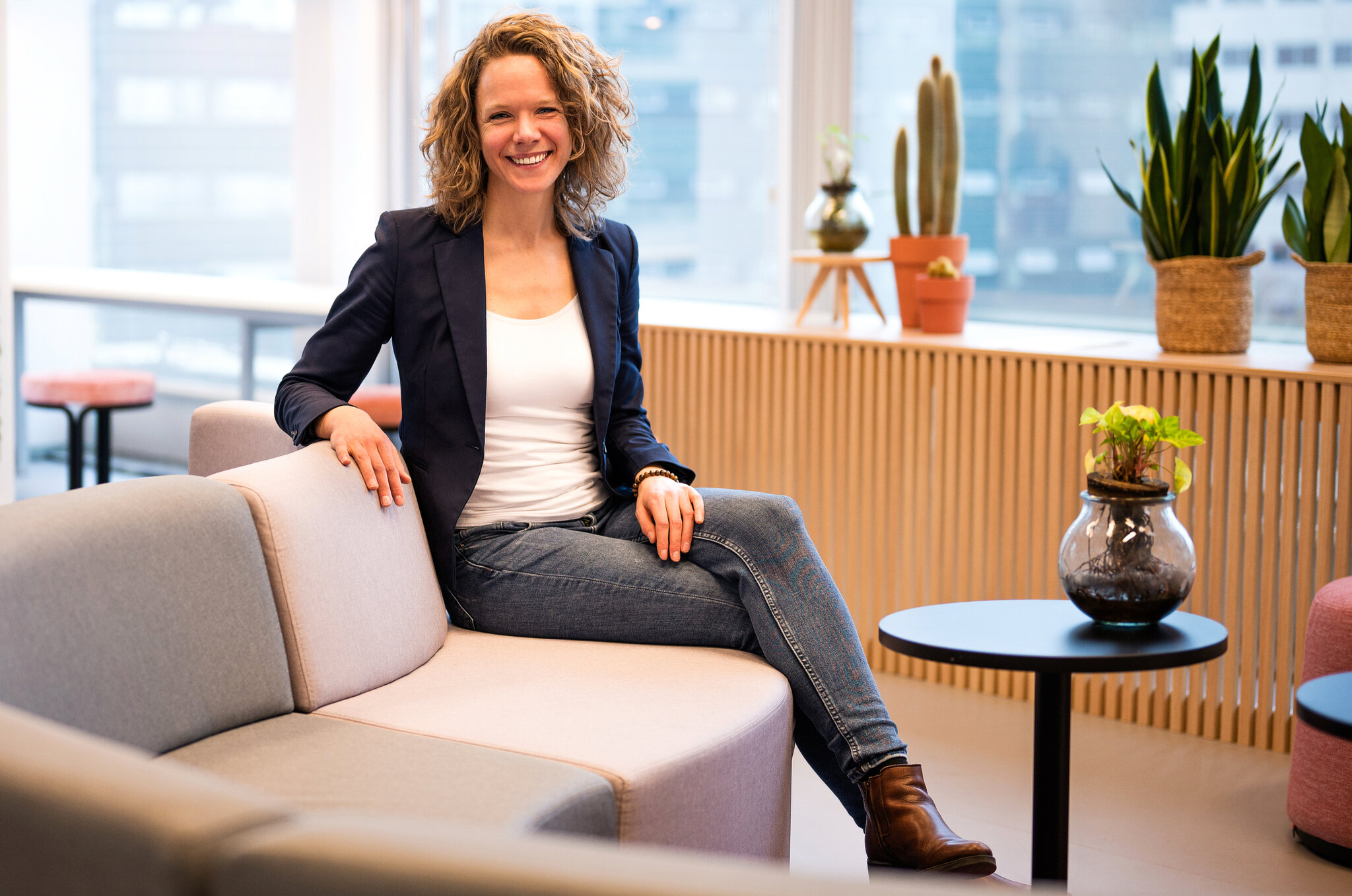How We Add Value
07

Bridging the Gap from Biochemistry to Patients
Kinases are a family of proteins that play a critical role in nearly every process essential for life. They are also key targets in cancer therapy. But designing drugs that selectively interact with the right kinase — without blocking others, which can lead to side effects for patients — remains a major challenge. To tackle this challenge, Joel Rüegger and colleagues developed CellEKT: a platform that allows researchers to study how drugs behave in living systems, offering scientists a better tool for testing drug selectivity and potential side effects. Their overarching goal is clear: to help drug developers select the most promising drug candidates early on, to deliver safer and more effective therapies to patients, faster.
Developing Drugs to Target the Body’s Workhorses
There are about twenty thousand different proteins in the human body. Amongst these, there is one family of about 600 proteins that collectively are involved in almost every biological process essential for life. These proteins, known as kinases, act as tiny machines that control essential functions like cell growth, cell-cell communication, metabolism, and more. This crucial role in human biology has made kinases a heavily investigated drug target — with over 80 kinase-targeting drugs already approved by the United States Food and Drug Administration.
Nonetheless, targeting kinases isn’t simple. The structures of these proteins are similar — sometimes frustratingly so — which makes designing highly selective drugs a major challenge. To explain this, scientists often use the metaphor of a lock and key: each kinase is a lock, and a drug must be designed to fit that lock without accidentally closing others. When drugs can also ‘lock’ additional, unintended proteins — called off-target effects — this can lead to harmful side effects. A highly selective drug, on the other hand, will fit well into its intended lock without closing others.
Understanding how drugs interact with these proteins in realistic and complex biological settings is essential to improving drug safety and effectiveness — and that’s exactly the kind of work being driven forward within the Oncode Accelerator cancer research ecosystem.
Unlocking Kinase Complexity
Joel Rüegger’s journey into this field began not in academia, but in industry. He started his career as a lab assistant apprentice at Roche, where he became fascinated by small molecules – a type of ‘key’ that can fit into kinase ‘locks’. That curiosity led him to pursue a Master’s degree at Leiden University, and eventually a PhD in the lab of Professor Mario van der Stelt – a Leiden University-based research group that is part of Oncode Institute and working within Oncode Accelerator’s Small Molecules Workstream.
Originally, Joel’s doctoral research focused on fine-tuning features of small molecules that block the activity of kinases – an early phase in drug discovery. However, Joel soon realized he was missing a key tool: one that would help him to assess how selective a drug really is.
“At the beginning of the project I was focusing on optimizing selectivity and metabolic stability of a kinase inhibitor. I was able to optimize the metabolic stability but couldn’t make the small molecules more selective. Realizing how challenging it is to optimize selectivity, my motivation shifted more and more towards developing tools that help researchers to better understand selectivity and support scientists to eventually make better drugs.”
Realizing how challenging it is to optimize selectivity, my motivation shifted more and more towards developing tools that help researchers to better understand selectivity and support scientists to eventually make better drugs.
Joel Rüegger, Postdoc Leiden University
This insight sparked the development of CellEKT, a platform designed to measure drug selectivity in living cells – how specific the ‘keys’ are for the ‘locks’. The work even caught the attention of his former colleagues at Roche — bridging the early roots of Joel’s scientific career with a collaboration around his current work on CellEKT within the lab of Mario van der Stelt.
“I love the fact that everything for me started back then at Roche, and now things are connecting again. When I worked at Roche, I left to go to university because I was fascinated by research but didn’t always understand what I was hearing in meetings. I went to university to be able to discuss and contribute — and these days I can really do that: I collaborate with other experts and can contribute to the field with the CellEKT platform.”
Bridging the Gap with CellEKT
Classically, to understand how selective kinase inhibitors are, scientists perform different biochemical experiments with isolated proteins and test their individual interactions, one-by-one in a test tube. This involves zooming in on only the lock and the key – the kinase and the potential drug – and removing all other variables. It’s a useful way to understand how the lock and the key interact, but it is very far removed from the complexity of what really happens in a patient.
Human cells contain an abundance of variables: thousands of interacting proteins, constantly changing signaling environments, and fluctuating concentrations of different biological molecules. All these factors can impact how an investigational drug might behave.
This is why, although biochemical assays are still an important scientific tool, at later stages in drug discovery it is crucial to be able to investigate how investigational drugs behave in more complex and realistic systems.
And that is where CellEKT comes in. “Kinase inhibitors can behave very differently in living cells versus in biochemical assays,” Joel explains. “We’ve already seen examples where side effects in patients could be better predicted from CellEKT data than from classical assays.”
CellEKT offers a middle ground between a petri dish and a patient: a platform that profiles how drugs interact with proteins in living cells, helping researchers to better predict which investigational drugs are most likely to succeed — so that only the best ones enter clinical trials.
The CellEKT platform is already actively being used by scientists across academia and industry, and the first results are promising. “The more data we gather,” Joel says, “the better we’ll understand why some patients experience side effects from one drug but not another. In our recent publication, we showed that for three different kinase inhibitors, biochemical selectivity – in other words, data generated by performing classical biochemical assays – did not accurately reflect selectivity in living cells. Cellular profiling with CellEKT provided a more reliable prediction of the effects observed in patients. It’s a very beautiful example of the potential for cellular platforms to support improved decision-making during drug development.”

Joel Rüegger, Postdoc Leiden University
Integration in the Oncode Ecosystem: From Platform to Patient
Being embedded in the overlapping Oncode Accelerator and Oncode Institute ecosystems and collaborating across public-private partnerships has played a crucial role in advancing CellEKT – providing not only technical support but also critical perspective.
“There’s a big difference between how companies and academic groups approach research,” Joel explains. “Academia prioritizes generating in-depth scientific data, regardless of how long it takes. For companies, data generation needs to be both robust and fast. Collaborating with both has helped us to shape the platform in a way that is broadly useful, so it can have the biggest possible impact for the broader scientific community.”
Collaborating with both academia and companies has helped us to shape the platform in a way that is broadly useful, so it can have the biggest possible impact for the broader scientific community.
Joel Rüegger, Postdoc Leiden University
In 2025, Joel won the PhD competition at the Leiden Academic Centre for Drug Research Spring Symposium, was co-awarded an NWO Takeoff Phase 1 grant with Leiden University colleague Anthe Jansen, and was selected to present CellEKT at the 2025 FIGON Dutch Medicines Days. Looking ahead, he will also showcase the CellEKT platform at the First International Kinomics Meeting in Hamburg. For his part, Joel is deeply enthusiastic every time he presents: “I’m still happily surprised sometimes when I talk with people and hear how much they like CellEKT!”
At its core, the CellEKT platform reflects the mission of Oncode Accelerator: to collaboratively optimize and accelerate the development of new cancer therapies for the benefit of patients of all ages. By building a platform that can more accurately predict drug selectivity in complex, living systems, Joel and his colleagues are helping researchers to make smarter, better choices earlier in the development pipeline.
“CellEKT is able to decrypt drug actions and guide the discovery and development of drugs, by getting closer to the patient,” Joel reflects. His long-term goal? “I want to give scientists the tools to make better decisions early-on — to identify the compounds with the best chance of success in clinical trials. The dream is to contribute to the development of a drug that gets FDA-approved and really benefits patients.”

About
Joel Rüegger
Joel began his scientific career with a three-year apprenticeship in medicinal chemistry at Roche Basel, followed by a Bachelor in Molecular Life Sciences (Muttenz, Switzerland) and a Master in Chemistry (Leiden, Netherlands). He completed his PhD in the Molecular Physiology group at Leiden University under Prof. Mario van der Stelt and funded by Oncode Institute, developing a chemical proteomics platform ‘CellEKT’ to profile kinase inhibitors. CellEKT is protected by two patent applications and was co-developed with Berend Gagestein. Joel now continues this work as a Postdoc at Leiden University in collaboration with Roche.
About Leiden University
Leiden University was founded in 1575 and is one of the leading international research universities in Europe. The University has seven faculties and a campus in both Leiden and The Hague. Our motto is Praesidium Libertatis – Bastion of Freedom.
Through their research, Leiden University works towards a fundamental understanding of the world and people around us. Leiden University uses that knowledge to make the world a safe, healthy, sustainable, prosperous and just place.
Society is facing complex issues, such as the climate crisis, wars, food shortages and increasing numbers of displaced people. As a broad-based university, it is Leiden University’s strength to help find solutions to such issues. Because to get to grips with complex problems we need insights from different perspectives and to transcend disciplines. Science and innovation cannot exist without each other, and Leiden University’s research also inspires our teaching. Through these cross-pollinations, Leiden University shapes their mission from society.
Leiden University is an international, broad-based university. Our academics conduct research in five core domains:
• Humans in the world
• Resilient and learning society
• Technology and society
• Peace, justice, democracy and governance
• Health and life sciences
Credits: photography by Marloes Verweij, Laloes Fotografie